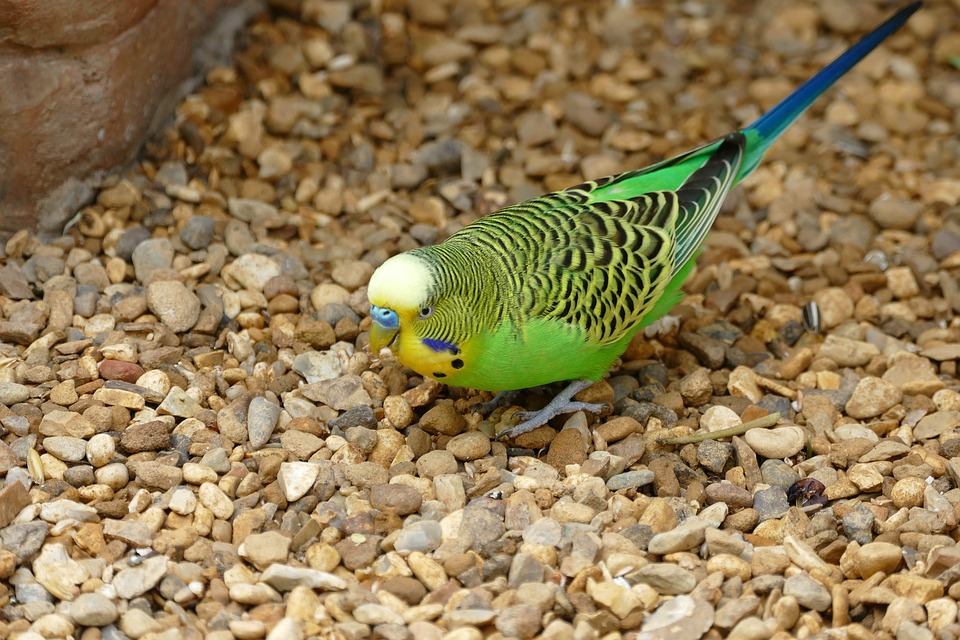Parrots are intelligent, social creatures that thrive on interaction and mental stimulation. When left alone for extended periods, they may resort to screaming as a means of seeking attention or expressing frustration. However, with proper understanding and training, you can help discourage your parrot from excessive screaming when left alone.
Creating a Stimulating Environment
Providing an enriching environment can significantly reduce your parrot’s tendency to scream when left alone. Consider the following strategies:
1. Toys and Interactive Games: Ensure your parrot has a variety of toys that encourage mental and physical engagement. Toys that can be manipulated and puzzles that require problem-solving skills are particularly beneficial.
2. Rotate Toys: Regularly rotate your parrot’s toys to maintain their interest and prevent boredom. Introducing new toys periodically can help keep them engaged and reduce the likelihood of excessive screaming.
3. Foraging Opportunities: Incorporate foraging activities into your parrot’s daily routine. Hide treats or food in interactive foraging toys or wrap them in paper to encourage natural foraging behaviors. This stimulates their natural instincts and provides mental stimulation.
4. Environmental Enrichment: Offer your parrot a variety of perches, swings, and climbing structures to keep them physically active. Creating a stimulating environment with different textures, shapes, and colors can help alleviate boredom and reduce the need for attention-seeking behaviors.
Establishing a Consistent Routine
Parrots thrive on routine and predictability. By establishing a consistent daily routine, you can help reduce their anxiety and minimize excessive screaming when left alone. Consider the following tips:
1. Daily Schedule: Set a regular daily schedule for your parrot, including feeding times, playtime, training sessions, and social interactions. Consistency and predictability can help your parrot feel secure and reduce stress.
2. Gradual Alone Time: Gradually increase the duration of time your parrot spends alone. Begin with short periods and gradually extend the time as your parrot becomes more comfortable. This gradual approach helps them adjust and feel less anxious when left alone.
3. Positive Reinforcement: Reward your parrot for calm and quiet behavior, even when you’re not physically present. Use treats, praise, or a favorite toy to reinforce quiet behavior. This positive reinforcement helps them associate calmness with positive experiences.
4. Training and Socialization: Invest time in training your parrot to respond to cues and commands. Teaching them simple commands like “quiet” or “enough” can be helpful in redirecting their behavior. Additionally, regular socialization with other parrots or humans can help prevent excessive screaming.
FAQs (Frequently Asked Questions)
Q1: Why does my parrot scream when left alone?
Parrots are highly social animals and require mental stimulation and interaction. When left alone for extended periods, they may resort to screaming as a means of seeking attention, expressing frustration, or even as a response to environmental changes.
Q2: Is it normal for parrots to scream?
While some vocalization is normal for parrots, excessive screaming can indicate underlying issues such as boredom, anxiety, or a lack of stimulation. Proper training, environmental enrichment, and a consistent routine can help reduce excessive screaming.
Q3: How can I train my parrot to stop screaming?
Training your parrot to reduce excessive screaming involves a combination of positive reinforcement, environmental enrichment, and establishing a consistent routine. Rewarding calm and quiet behavior, providing mental and physical stimulation, and gradually increasing alone time can all contribute to reducing excessive screaming.
Q4: Can I use punishment to stop my parrot from screaming?
Punishment is not recommended as a means of discouraging parrots from screaming. Instead, focus on positive reinforcement and creating an enriching environment. Punishment can lead to increased anxiety, aggression, and other behavioral issues in parrots.
Q5: Are there any medical reasons for excessive screaming in parrots?
Yes, excessive screaming can sometimes be a sign of underlying health issues. If you’ve ruled out behavioral factors and your parrot continues to scream excessively, it’s advisable to consult with an avian veterinarian to ensure there are no underlying medical conditions contributing to the behavior.
Remember, each parrot is unique, and it may take time and patience to find the most effective strategies for reducing excessive screaming when left alone. By understanding their needs, providing stimulation, and establishing a routine, you can help create a harmonious environment for both you and your feathered companion.









